How ex-AFL players and Prokick Australia punters are changing the NFL
A former Hawthorn and Brisbane player has helped 150 Aussies make it as punters in the US. Now they’re changing the way American football is played.
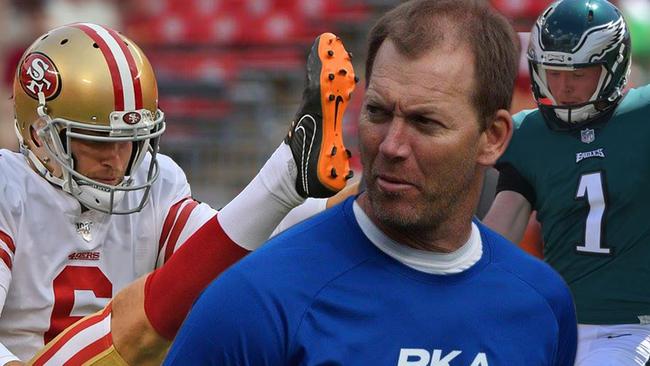
Victoria
Don't miss out on the headlines from Victoria. Followed categories will be added to My News.
There are more Aussie punters playing American football than ever before, and while former AFL stars like Ben Graham, Saverio Rocca and Darren Bennett might spring to mind as our greatest trailblazers, one lesser-known former AFL player has had far more influence on the Australian invasion.
Nathan Chapman played 76 AFL games for Brisbane and Hawthorn between 1993 and 2000 before heading to the US for stints at the Green Bay Packers and Chicago Bears in 2004.
But his NFL career didn’t turn out like Graham’s or Rocca’s. He was cut and forced to return home to Australia after just a few months in the US.
Ironically, that’s when Chapman’s influence in America really began.
“I knew I could kick at NFL level, and I knew guys in Melbourne who could do it,” Chapman told the Herald Sun.
“So the question was, if they’re not there, why not?”
He figured the answer was simple: Aussies had the talent, but not the pathway.
So in 2007 he started Prokick Australia, a 12-month punting program helping big-kicking Aussies make it in America.
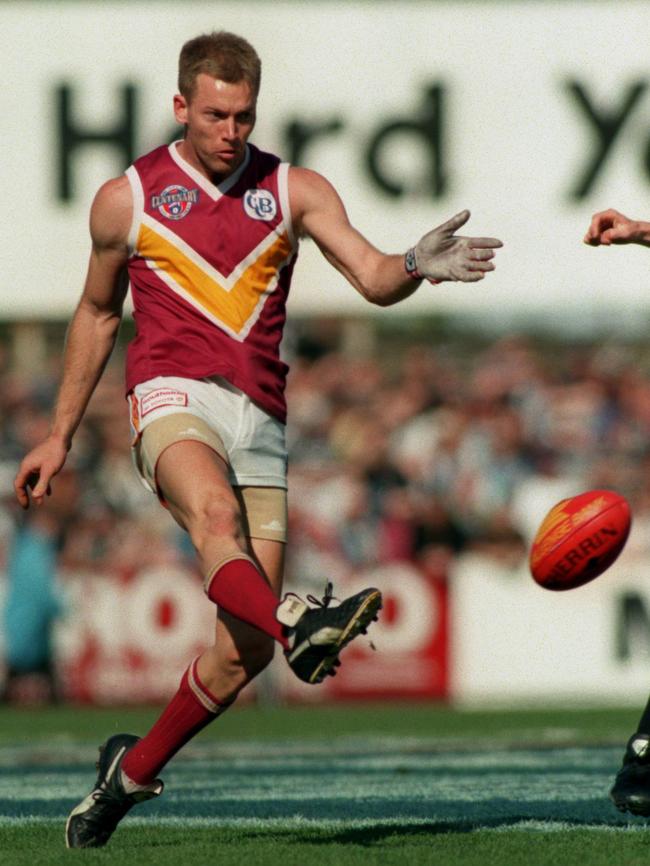
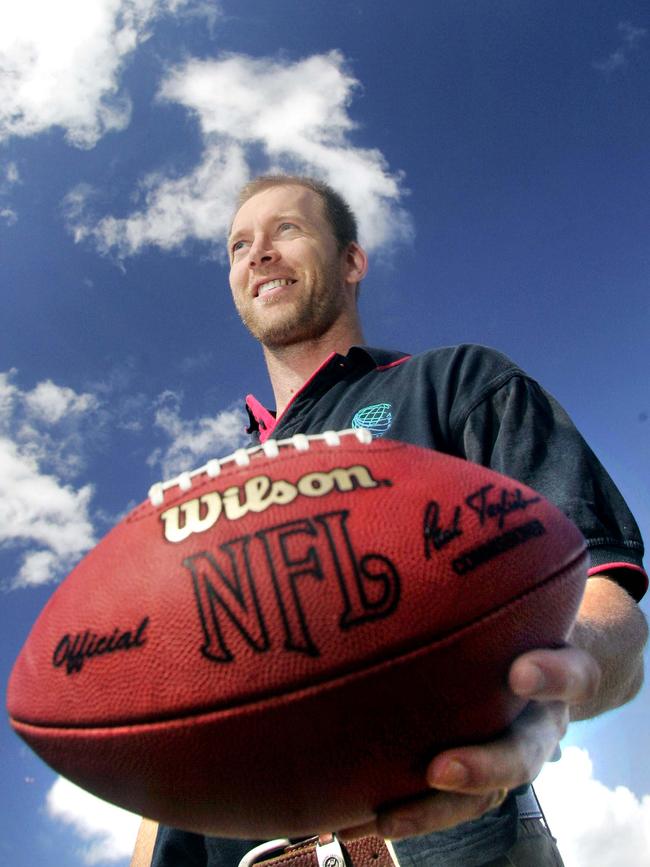
In the 14 years since, more than 150 graduates of Prokick have landed college football scholarships, equating to about $44 million worth of funding. Another 10 or so have been through the NFL ranks, with five currently punting at the top level.
The program has come a long way since 2007, when Chapman had to sell the dream without any real runs on the board.
“I had to convince parents of 18-year-olds here that I was going to teach their kids how to kick an American football and send them to college in the US,” Chapman said.
“On the flip side, I needed to convince American coaches that I had 18-year-old guys in Australia who could help them win games of football.”
There is no Australian equivalent to college football.
It’s big business and high-pressure, with crowds often in excess of 100,000 people.
Unsurprisingly, US coaches were initially reluctant to take a chance on unknown athletes from the other side of the world.
“Four year scholarships can be worth $250,000 (USD). They don’t just hand them out — they get the best recruits in the world so they can win. We might have had two college players in our first year and then three the next, and five in year three.”
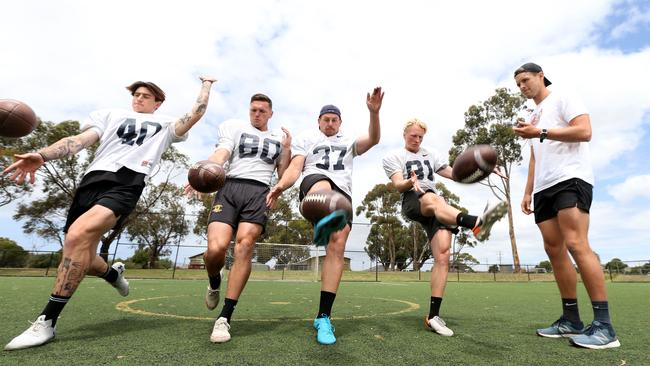
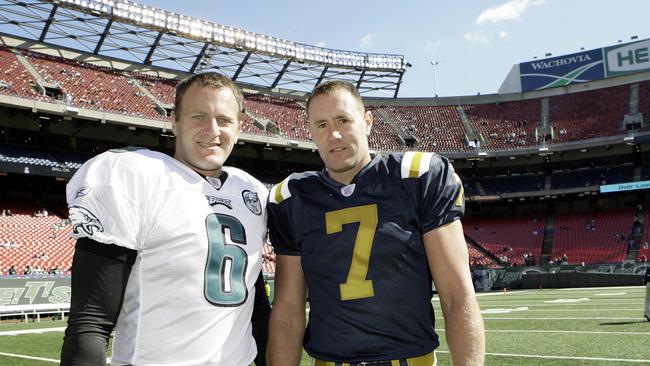
The first few years were tough for Chapman. With his family in Brisbane, he would often sleep on friends’ couches when in Melbourne trying to get Prokick off the ground.
But as more Aussies made their mark in the US, Chapman became a commodity college football came to know and trust, and the wheel began to turn.
By the time Prokick graduates had won the Ray Guy award (given to the best punter in college football) five years in a row, from 2013-2017, the results were undeniable.
“Coaches are now aware of how many Aussie guys they’re coming up against and realise they might want one themselves.”
For the growing list of coaches open to adding an Australian punter to their rosters, Chapman is there to help.
“We match the player with the coach,” Chapman said.
“We’ve got to understand the player’s temperament; can he handle being booed by 100,000 people? Does he like the city where the school’s located? Does he hate the cold?
“We’ve got to make sure they can do the job, because most of the US coaches haven’t kicked a ball in their life so they can’t give them much help.”
Above anything else, players must be totally committed.
Chapman has no doubt there are a wealth of AFL stars with the skill and power needed to perform for college or NFL teams.
The reason we don’t see more of them is due to the rigours of the job, rather than a lack of talent.
“You might move to America with two kids and have to go to university from 5am to 10pm.
Sometimes people are shocked by the demands of it. It can be hard on the family, hard on the wife … there’s a lot to consider,” Chapman said.
The lifestyle and the opportunity to get a US college education is far better suited to Aussies in their early to mid 20s than it is to retired AFL stars who are settled with families.
It’s likely the reason retired Essendon superboot Dustin Fletcher isn’t punting in America as some expected, while his son Mason — another Prokick graduate — is at the University of Cincinnati on a scholarship.
It’s also the reason why the former AFL players currently making names for themselves in the US weren’t big names who had long careers in Australia.
“Cam Johnston was on Melbourne’s list, Arryn Siposs was with St Kilda ... they went from being in that environment to being in college and playing in front of an average crowd of 90-105,000 people every week.”
Now they’re Philadelphia Eagles teammates in the NFL, adding another chapter to Australia’s influence in the US.
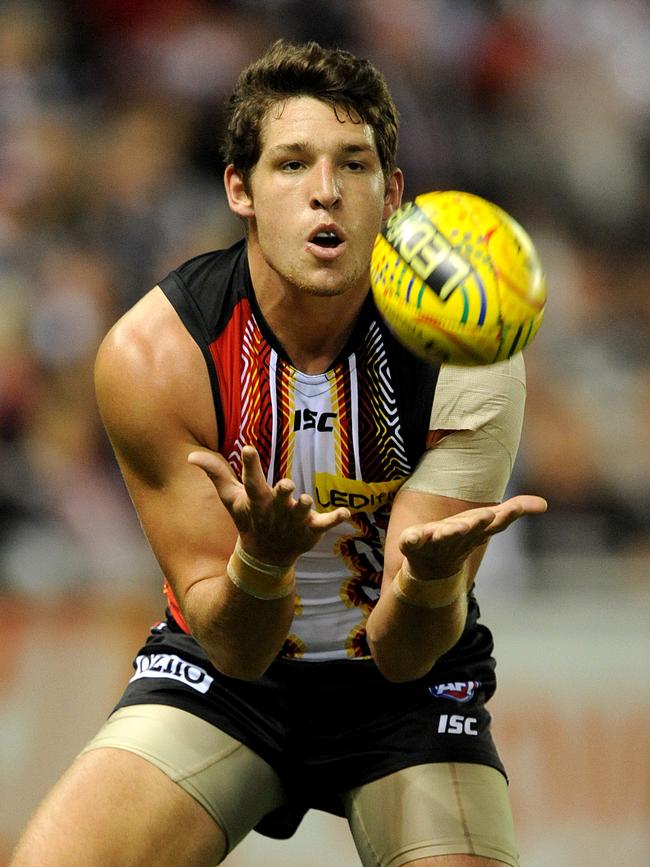
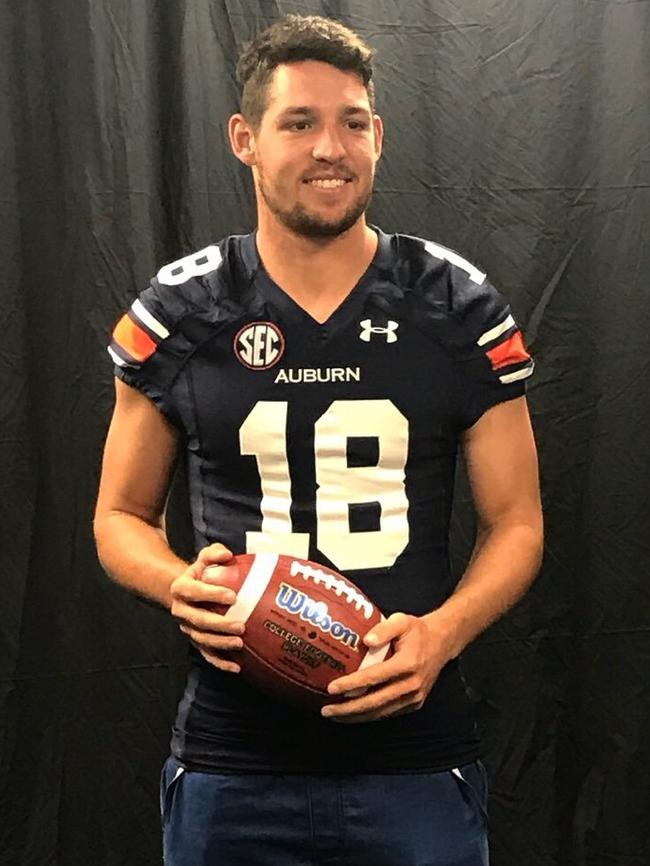
“When we first started, we had to kick like Americans so coaches understood what they were looking at,” Chapman said.
That meant a high ball drop, a straight leg and the ball travelling in a perfect spiral.
“You basically had to look like an American or they weren’t interested.”
But times have changed.
“Some of the older coaches are still set in their ways, but some newer coaches are looking for the next big thing to help them, and want to change the punting landscape.”
There’s no better recent example than the play that saw former Fremantle player Max Duffy go viral for selling the dummy in Kentucky’s Gator Bowl win over North Carolina State.
Duffy lined up for a punt, realised the defence had blitzed and was about to block his kick, then calmly held the ball to the right and stepped left, avoiding tacklers before sending a long drop punt down the field.
It had Aussie rules written all over it.
One commentator described it as “one of the coolest things I’ve ever seen a punter do.”
It wasn’t the first time Duffy, who won the Ray Guy Award in 2019, put his AFL skills on show.
He also made a touchdown-saving tackle on a receiver who caught and returned one of his punts.
Actions like this go beyond what’s expected of punters, but could become common as more coaches become aware of Aussies’ capabilities.
Chapman has noticed a change in the role in recent years.
“What went from just kicking a spiral became doing a spiral, a drop punt, kicking on the run ... Can they run for a first down? Can they throw it?”
Scott Harding, who played 50 AFL games for Brisbane and Port Adelaide before heading down the Prokick path, proved how versatile Aussies can be at college level.
On top of punting (with both feet) for the University of Hawaii, he also played as a wide receiver and punt returner — roles that require a totally different skill set.
At the peak of his career, major US sports website Grantland dubbed him “the most interesting man in college football”.
It’s impossible to know how the role of punters will change in the next five years, but Chapman is certain there’ll be ample opportunities for the next generation of Aussies wanting to leave their mark on the American game.
“It’s a brilliant opportunity for guys who want to explore, get a degree, live and travel — it’s an opportunity to play professional sport while being in college,” Chapman said.
“And if you get an opportunity to go to the pros after that, then great.”
Originally published as How ex-AFL players and Prokick Australia punters are changing the NFL


